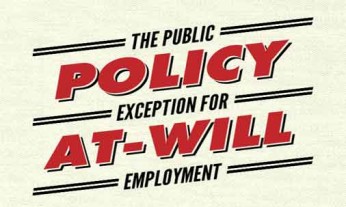 On July 22, 2016, Governor Jerry Brown signed a bill that will change pay stub requirements, allowing California employers to include less information on some of your employee wage statements. Assembly Bill No. 2535 amends Section 226 of the California Labor Code, which lays out what information must be listed on your pay stub, and which employees must receive them. The bill creates an additional exemption, regarding which employees must be provided with a list of how many hours they worked – meaning that fewer workers will be entitled to receive such a list.
On July 22, 2016, Governor Jerry Brown signed a bill that will change pay stub requirements, allowing California employers to include less information on some of your employee wage statements. Assembly Bill No. 2535 amends Section 226 of the California Labor Code, which lays out what information must be listed on your pay stub, and which employees must receive them. The bill creates an additional exemption, regarding which employees must be provided with a list of how many hours they worked – meaning that fewer workers will be entitled to receive such a list.
Under existing law, all employees must be provided with a pay stub either at the time they are paid, or semimonthly. The wage statement must include certain types of information, including:
- Gross wages earned
- Net wages earned
- The number of piece-rate units earned
- Deductions
- The dates of the pay period in question
- The employee’s name, and the last four digits of the employee’s social security number or employee identification number, and
- The employer’s name and address.
An employer is also required to list the hours that the employee in question worked during the pay period, unless the employee is a) a salaried employee, and b) is exempt from overtime.
What Pay Stub Requirements the New Law Changes
Under AB 2535, which takes effect on January 1, 2017, another group of employees will added to the hours exemption. Employers will not be required to list an employee’s total hours worked if the employee is exempt from the payment of minimum wage and the employee is exempt from overtime.
Some examples of employees who may fit this exemption are:
- Outside salespersons
- Employees working in an executive, administrative or professional capacity
- Workers who are in their employers’ immediate families (such as someone who works for their spouse, their parent, or their child)
- Computer software workers who are salaried employees in accordance with Section 515.5 of the California Labor Code (which makes certain software professionals exempt from overtime if they meet certain requirements)
- People participating in (or working as staff members for) certain live-in rehabilitation programs focused on preventing substance abuse, and
- Employees working in participation with certain national service programs.
Complying With Pay Stub Requirements
There are penalties for failing to comply with Section 226. An employer can face a fine of $50 for the first pay period in which it fails to provide an employee with the proper information – and $100 per employee per pay period for each violation in subsequent pay periods, up to $4,000. An employee who takes action against an employer regarding a Section 226 violation may be awarded costs and attorney’s fees. If an employer fails to allow an employee to inspect or copy records, the employer may be liable for a $750 penalty to the Labor Commissioner. [Read more…]


